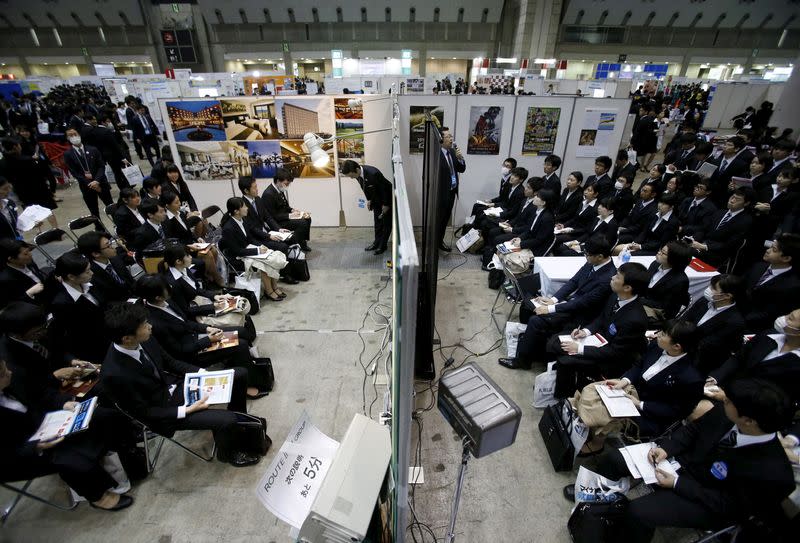BOJ highlights broadening wage, price hikes in report on regional Japan

By Leika Kihara
TOKYO (Reuters) -Many regional areas of Japan saw small and mid-sized firms aggressively raise wages, reflecting intensifying labour shortages, the Bank of Japan (BOJ) said on Monday, underscoring its growing conviction that wage hikes were broadening.
In a quarterly report, the central bank also said some firms were considering raising the prices of their goods and services to guard against the prospect of rising labour costs.
"Many regions reported cases where wage increases by small and mid-sized firms were broadening at a degree unseen in recent years," the BOJ said in the report analysing the economic situation of regional areas.
The assessment suggests the country's tight job market is emerging as a fresh factor that could sustainably keep inflation around the BOJ's 2% target, meeting the condition the central bank has set for phasing out its massive stimulus.
But the BOJ's branch managers overseeing big cities said there was uncertainty on whether firms will keep hiking pay next year, heightening the chance the central bank will spend more time gauging the outlook before tweaking its ultra-loose policy.
"If companies can earn enough revenues to pay for higher wages, there's hope wage rises will continue. Given uncertainty over the outlook, however, it's premature to say decisively that this will happen," Takeshi Nakajima, the BOJ's Osaka branch manager, told a news conference.
Tetsuya Hiroshima, the BOJ's Nagoya branch head, said many firms were worried about the impact slowing global growth could have on their earnings.
"Many firms see the need to keep raising wages. But whether they will do so next year will depend on the business environment going forward," said Hiroshima, who oversees the Chubu region - home to auto giant Toyota Motor Corp.
With inflation exceeding its 2% target for more than a year, markets are speculating that the BOJ will phase out its massive stimulus that has drawn criticism for distorting market pricing and narrowing financial institutions' margins.
The BOJ has said it needs more evidence that inflation will sustainably meet its price target, accompanied by solid wage growth.
Companies offered the biggest pay hike in three decades this year to compensate households for the rising cost of living. The hope among BOJ officials is for wages to keep rising next year and underpin the economy by giving households purchasing power.
In the Chubu region, the economy is recovering as automakers ramp up production due to easing chip supply disruptions. But consumption is patchy with supermarkets complaining of households reverting to frugal spending, Hiroshima said.
In the quarterly report, the BOJ raised its economic assessment for three of Japan's nine regions, and maintained it for the remaining six regions.
Monday's report will be among the factors the BOJ will analyse to formulate fresh quarterly growth and inflation forecasts at its next policy meeting on July 27-28.
(Reporting by Leika Kihara; Editing by Edmund Klamann, Jacqueline Wong, Sharon Singleton and Simon Cameron-Moore)

 Yahoo Finance
Yahoo Finance 